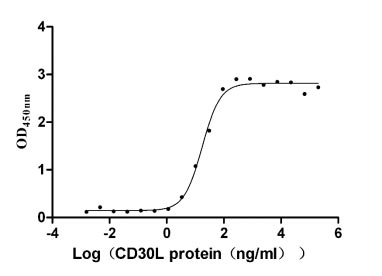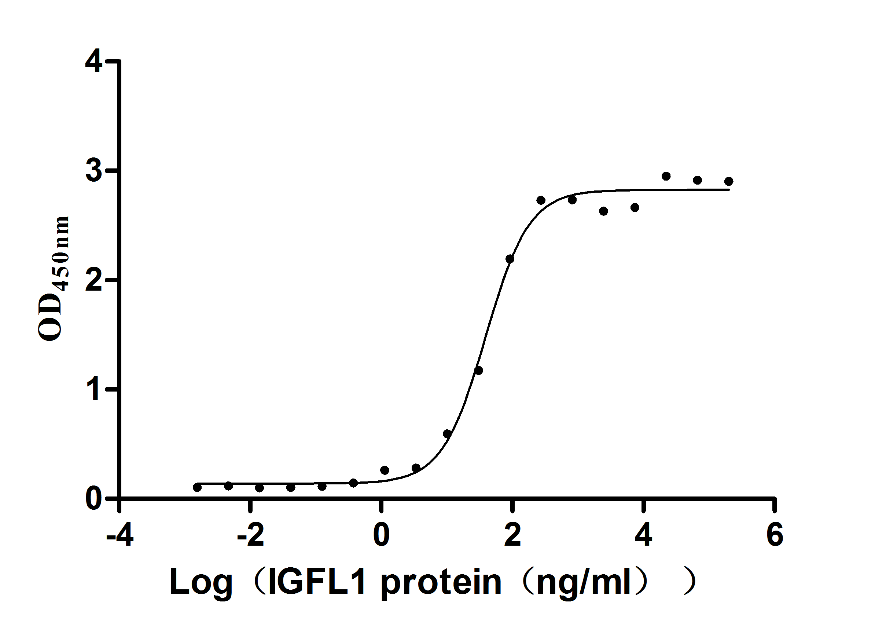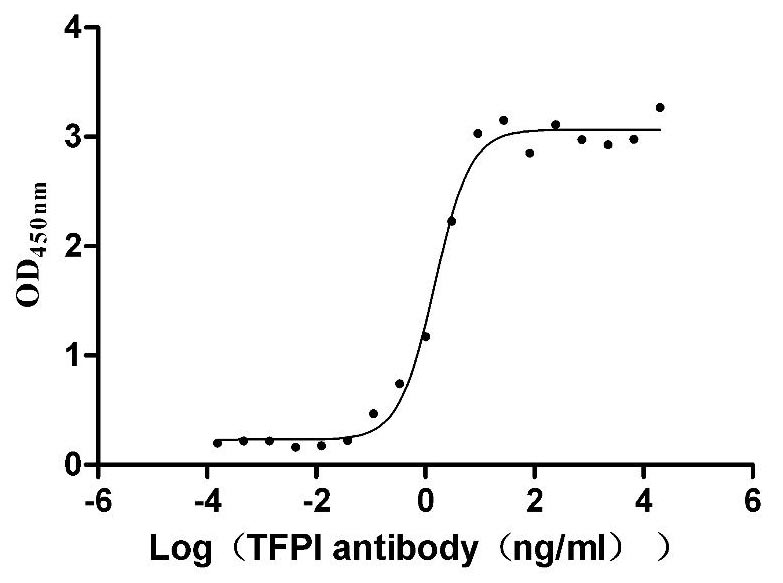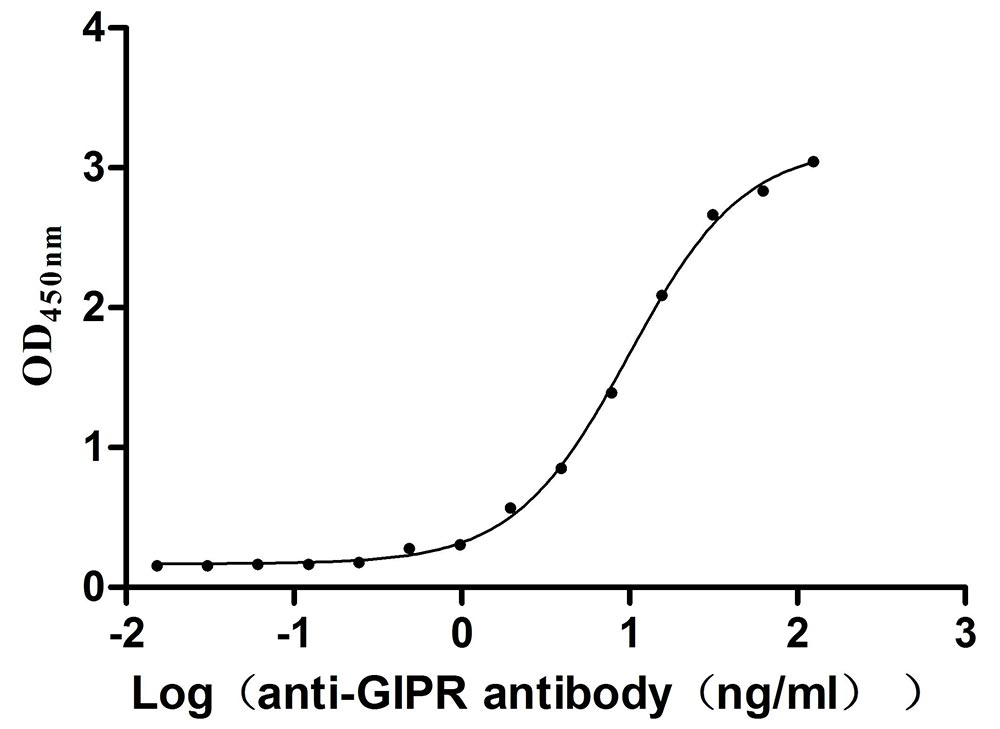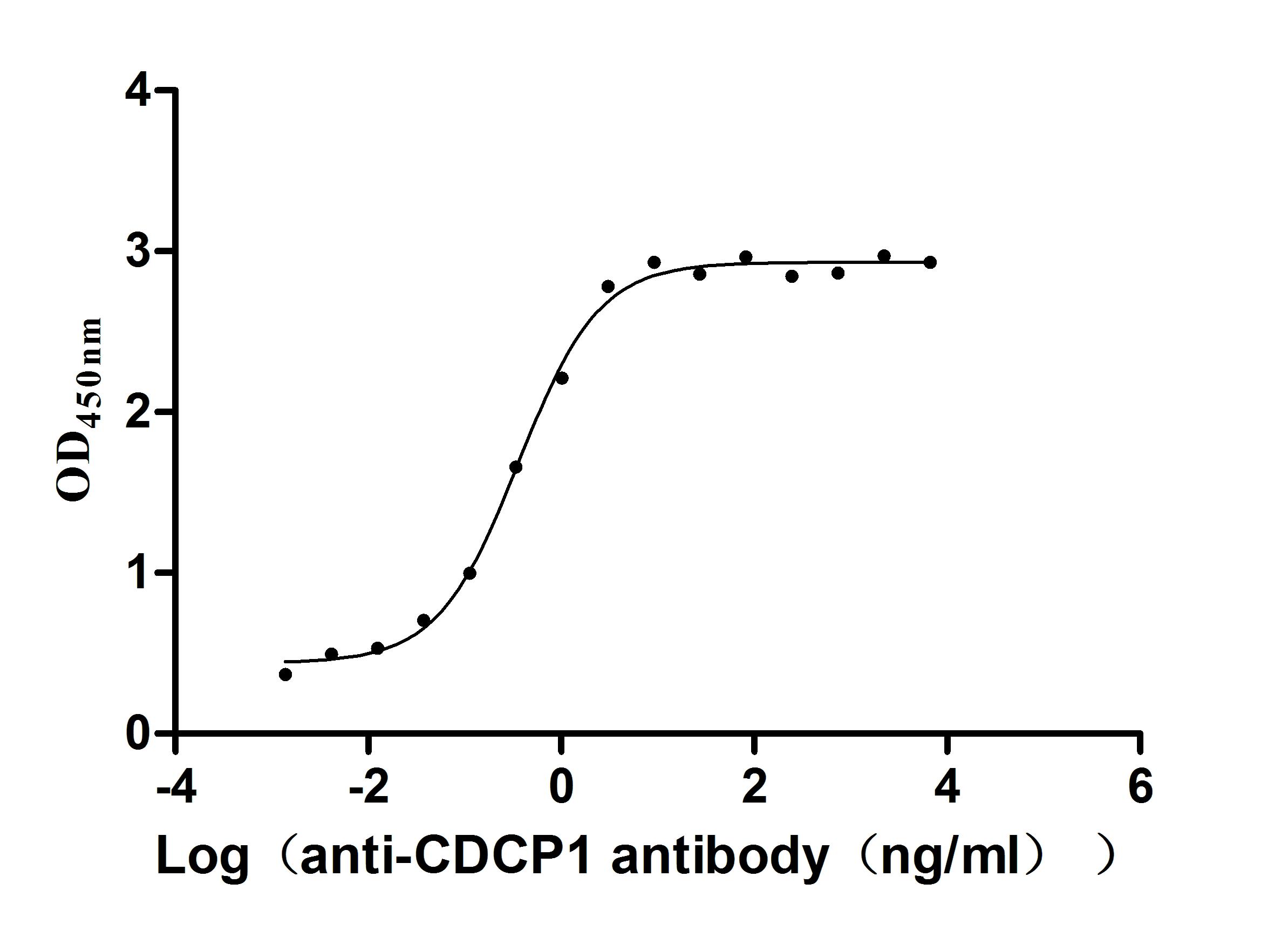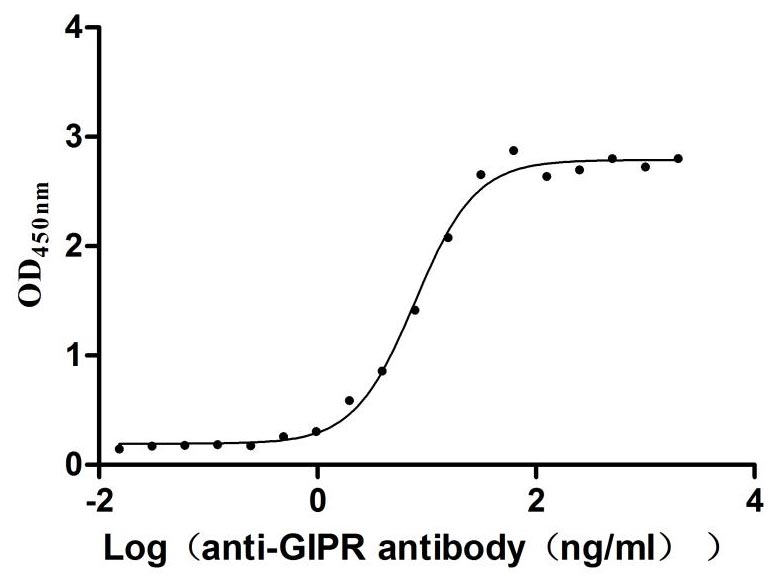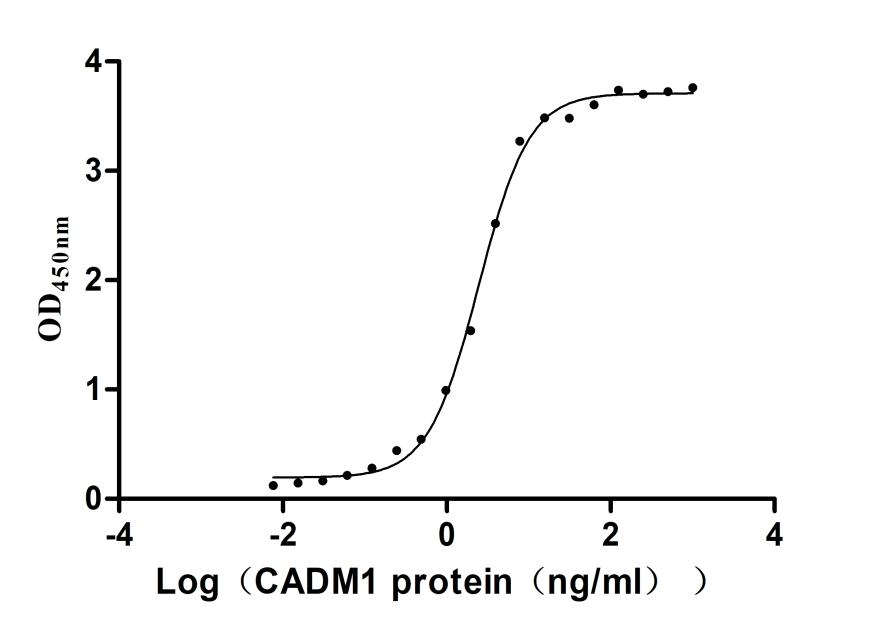Recombinant Oryza sativa subsp. japonica Two pore potassium channel a (TPKA)
-
中文名稱:扁桃體亞屬日本產植物TPKA重組蛋白
-
貨號:CSB-CF769591OFG
-
規格:
-
來源:in vitro E.coli expression system
-
其他:
產品詳情
-
基因名:TPKA
-
Uniprot No.:
-
別名:TPKA; KCO1; Os03g0752300; LOC_Os03g54100; OJ1112_G08.7; OsJ_12594; OSJNBa0032E21.10; OSJNBa0047E24.7; Two pore potassium channel a; Two K(+ channel a; Calcium-activated outward-rectifying potassium channel 1; OsKCO1
-
種屬:Oryza sativa subsp. japonica (Rice)
-
蛋白長度:full length protein
-
表達區域:1-347
-
氨基酸序列MDDNSIQQSLLADNPNVLQRKPSEGVNRFRRCRSTPSTDPLQGPPEKGSSVKAKELFKEM RPSFRLVGLLLFIYLLVGVLAFYAVMDEISGKRTNRVLDALYFCVVTMTTVGYGDLVPNN DTTKLLACAFVFMGMAVVALFVSKVADYLVEKQEVLFFKALHTNLKGGETKMLRAIETNR IKYKFYTNALLLVLSIISGTVFLWKVEKLSLVDSFYCVCATITTLGYGDKSFSSKLGRVF AVFWIITSTIIMAQFFMYLAEIYTERRQKMLANWVLTRKMTKMDLEAADLDDDRQVGAAE FVVYKLKELGKINQEEISSFLEEFEKLDVDHSGTLSPYDLTLAQSAQ
Note: The complete sequence may include tag sequence, target protein sequence, linker sequence and extra sequence that is translated with the protein sequence for the purpose(s) of secretion, stability, solubility, etc.
If the exact amino acid sequence of this recombinant protein is critical to your application, please explicitly request the full and complete sequence of this protein before ordering. -
蛋白標簽:N-terminal 10xHis-tagged
-
產品提供形式:Liquid or Lyophilized powder
Note: We will preferentially ship the format that we have in stock, however, if you have any special requirement for the format, please remark your requirement when placing the order, we will prepare according to your demand. -
緩沖液:Lyophilized from Tris/PBS-based buffer, 6% Trehalose, pH 8.0
-
儲存條件:Store at -20°C/-80°C upon receipt, aliquoting is necessary for mutiple use. Avoid repeated freeze-thaw cycles.
-
保質期:The shelf life is related to many factors, storage state, buffer ingredients, storage temperature and the stability of the protein itself.
Generally, the shelf life of liquid form is 6 months at -20°C/-80°C. The shelf life of lyophilized form is 12 months at -20°C/-80°C. -
貨期:Basically, we can dispatch the products out in 1-3 working days after receiving your orders. Delivery time may differ from different purchasing way or location, please kindly consult your local distributors for specific delivery time.Note: All of our proteins are default shipped with normal blue ice packs, if you request to ship with dry ice, please communicate with us in advance and extra fees will be charged.
-
注意事項:Repeated freezing and thawing is not recommended. Store working aliquots at 4°C for up to one week.
-
Datasheet & COA:Please contact us to get it.
相關產品
靶點詳情
-
功能:Highly selective inward-rectifying potassium channel that is specifically located in the tonoplast of large vacuoles. Functions independently of the voltage difference across the membrane.
-
亞細胞定位:Vacuole membrane; Multi-pass membrane protein. Note=Tonoplast of large vacuoles.
-
蛋白家族:Two pore domain potassium channel (TC 1.A.1.7) family
-
數據庫鏈接:
Most popular with customers
-
Recombinant Human Tumor necrosis factor receptor superfamily member 8 (TNFRSF8), partial (Active)
Express system: Mammalian cell
Species: Homo sapiens (Human)
-
Recombinant Human IGF-like family receptor 1 (IGFLR1), partial (Active)
Express system: Mammalian cell
Species: Homo sapiens (Human)
-
Recombinant Human Tissue factor pathway inhibitor (TFPI), partial (Active)
Express system: Mammalian cell
Species: Homo sapiens (Human)
-
Recombinant Rat Intestinal-type alkaline phosphatase 1 (Alpi) (Active)
Express system: Mammalian cell
Species: Rattus norvegicus (Rat)
-
Recombinant Mouse Gastric inhibitory polypeptide receptor (Gipr), partial (Active)
Express system: Mammalian cell
Species: Mus musculus (Mouse)
-
Recombinant Human CUB domain-containing protein 1 (CDCP1), partial (Active)
Express system: Mammalian cell
Species: Homo sapiens (Human)
-
Recombinant Rat Gastric inhibitory polypeptide receptor (Gipr), partial (Active)
Express system: Mammalian cell
Species: Rattus norvegicus (Rat)
-
Recombinant Human Cytotoxic and regulatory T-cell molecule (CRTAM), partial (Active)
Express system: Mammalian cell
Species: Homo sapiens (Human)


